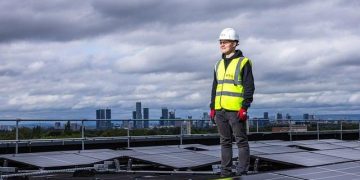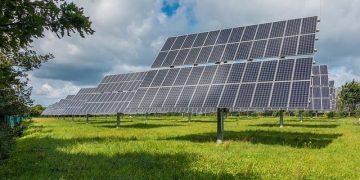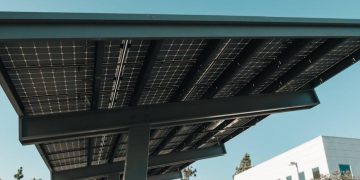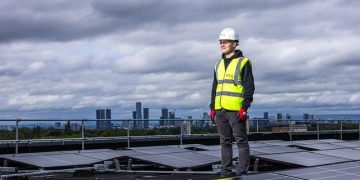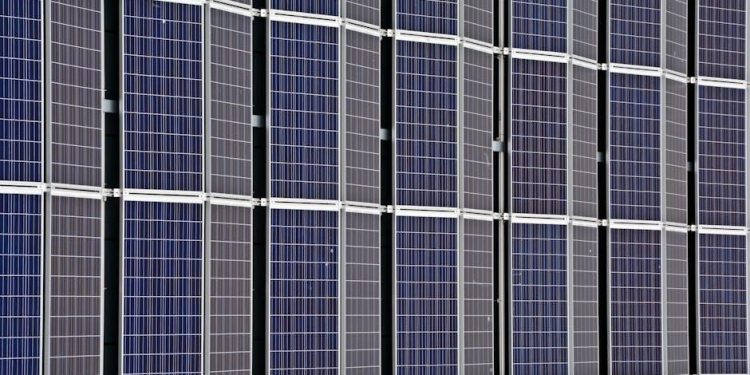As the sun rises each day, casting its golden rays across rooftops and landscapes, a question lingers in the air, poised at the intersection of innovation and tradition: should the harnessing of this abundant energy source be a mandatory feature of our future homes? The debate over requiring solar panels in new residential constructions is not just a technical or economic discussion, but a reflection of our values and priorities as we strive to build a sustainable future. On one hand, solar technology promises a reduction in carbon footprints and energy bills, while on the other, it raises concerns about costs, feasibility, and aesthetic implications. In this article, we delve into the heart of this debate, exploring the potential benefits and drawbacks of mandating solar panels, and examining the broader implications for homeowners, builders, and the environment. Whether viewed as a necessary step towards environmental stewardship or a premature imposition on the housing market, the question beckons us to consider the role of renewable energy in shaping the homes of tomorrow.
The Future of Housing: Integrating Solar Energy into New Builds
As we look towards the future of housing, the integration of solar energy into new builds stands as a beacon of innovation and sustainability. By harnessing the power of the sun, new residential constructions can significantly reduce their carbon footprint while providing homeowners with a long-term reduction in energy costs. This shift not only aligns with global environmental goals but also resonates with a growing consumer demand for eco-friendly living solutions. The prospect of mandating solar panels in new builds offers several potential benefits:
- Energy Independence: Homeowners can generate their own electricity, reducing reliance on the grid and protecting against fluctuating energy prices.
- Increased Property Value: Homes equipped with solar panels often see an increase in market value, attracting environmentally conscious buyers.
- Environmental Impact: Reducing reliance on fossil fuels helps lower greenhouse gas emissions, contributing to a healthier planet.
- Incentives and Rebates: Governments and local authorities may offer financial incentives for homes that integrate solar technology, offsetting initial installation costs.
While the benefits are clear, the conversation around making solar panels a requirement involves addressing potential challenges such as the upfront costs and the need for skilled installation professionals. However, as technology advances and solar becomes more accessible, these hurdles may soon diminish, paving the way for a more sustainable housing future.

Balancing Costs and Benefits: The Economic Impact of Mandatory Solar Panels
When evaluating the economic impact of requiring solar panels on new residential constructions, it’s essential to consider both the upfront costs and the long-term benefits. On the cost side, homeowners face increased initial expenses, as installing solar panels can add significant amounts to the price of a new home. This may lead to higher mortgage payments and could potentially limit market accessibility for first-time buyers or those with tighter budgets.
However, the benefits are also noteworthy. Mandatory solar panels can lead to substantial savings on energy bills, often reducing electricity costs by a significant margin over time. Additionally, they can increase property values and contribute to a greener, more sustainable community. Some potential advantages include:
- Reduced dependency on fossil fuels, promoting environmental sustainability.
- Long-term financial savings through lower utility bills.
- Potential eligibility for tax credits and incentives that can offset initial installation costs.
- Increased resale value of homes equipped with solar technology.
The economic equation for mandatory solar panels involves a delicate balance between these costs and benefits. Policymakers and stakeholders must weigh these factors carefully to ensure that the initiative supports both economic feasibility and environmental responsibility.
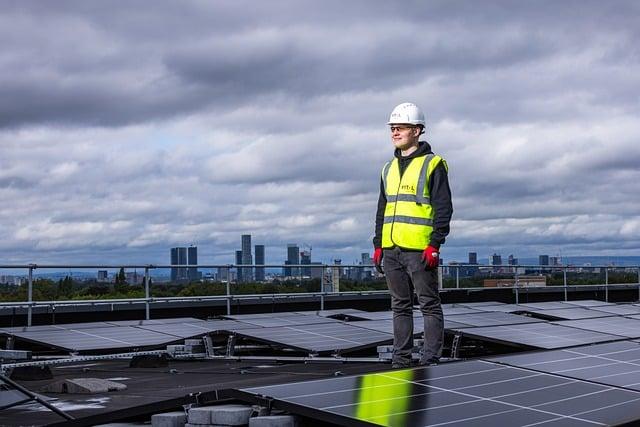
Environmental Implications: Harnessing Solar Power for Sustainable Living
The integration of solar panels into new residential constructions presents profound environmental benefits, marking a pivotal shift towards sustainable living. By tapping into the sun’s abundant energy, solar panels significantly reduce reliance on fossil fuels, which are major contributors to greenhouse gas emissions. Solar energy is not only renewable but also emits no pollutants during its operation, offering a cleaner, healthier alternative to traditional power sources. Moreover, solar panels can decrease the overall carbon footprint of a home, making them a crucial component in combating climate change.
Beyond the immediate reduction in carbon emissions, the use of solar power fosters a more sustainable ecosystem. Here are some key environmental implications:
- Resource Conservation: By decreasing the demand for fossil fuels, solar panels help preserve natural resources for future generations.
- Reduction in Air and Water Pollution: Unlike coal or natural gas, solar power does not pollute air or water resources, leading to improved environmental quality.
- Biodiversity Preservation: By reducing habitat destruction linked to traditional energy production, solar energy supports biodiversity conservation efforts.
- Sustainable Urban Development: Incorporating solar technology in urban planning can drive cities towards becoming more resilient and energy-independent.
These factors collectively underscore the potential of solar panels to contribute significantly to a sustainable future, urging a reevaluation of their role in modern construction practices.

Policy Considerations: Crafting Effective Solar Panel Mandates for Developers
In the realm of sustainable development, crafting mandates for solar panel installation in new residential constructions necessitates a delicate balance between innovation and practicality. Policymakers must consider several critical factors to ensure these mandates are not only environmentally beneficial but also economically viable. Firstly, incentive structures should be designed to encourage developers to integrate solar technologies without imposing prohibitive costs. This might include tax breaks, subsidies, or streamlined permitting processes. Additionally, policymakers should take into account the regional climate variations that affect solar energy efficiency, ensuring that mandates are adaptable and relevant to different geographical locations.
Moreover, engaging stakeholders through collaborative dialogue can enhance the effectiveness of these mandates. By involving developers, environmental groups, and the local community in the decision-making process, policies can be better tailored to address diverse concerns and expectations. Furthermore, implementing flexibility in compliance—such as allowing developers to opt for community solar projects or energy efficiency measures as alternatives—can foster innovation and broader acceptance. Ultimately, thoughtful policy considerations can lead to mandates that not only advance renewable energy goals but also resonate positively with all involved parties.
Insights and Conclusions
As the sun dips below the horizon, casting a warm glow on the roofs of our neighborhoods, the debate over solar panels on new residential constructions continues to shine brightly. We stand at a crossroads, balancing innovation with tradition, sustainability with cost, and individual choice with collective responsibility. Whether or not the panels become a staple on every new home remains a decision in the hands of policymakers, builders, and communities. Yet, one thing is certain: the conversation has sparked a vital discourse on the future of energy and our role in shaping a greener tomorrow. As we close this chapter, the question lingers in the air, much like the first light of dawn—should we harness the power of the sun for every new home, or let each house decide its own path to illumination? The answer, as always, lies in the hands of those willing to dream of a brighter future.

